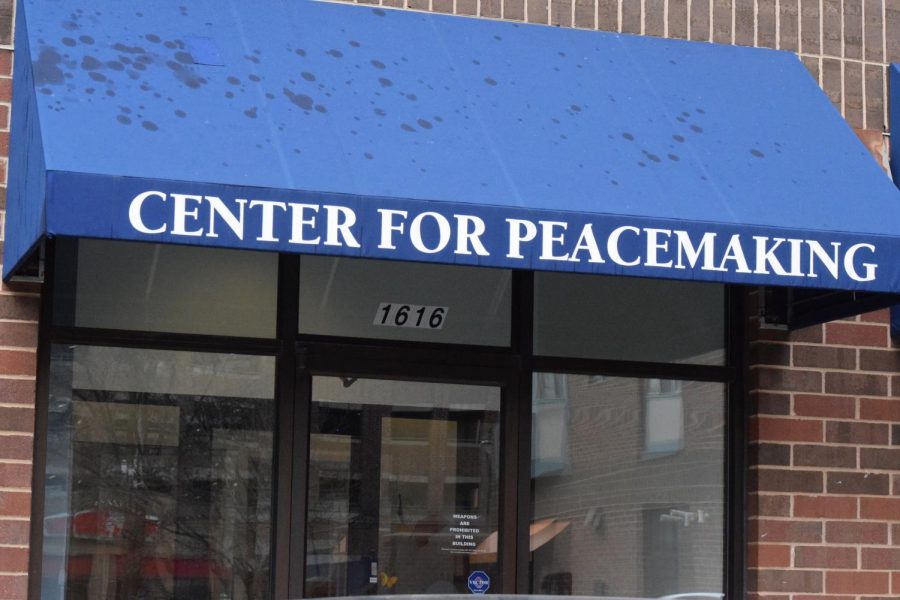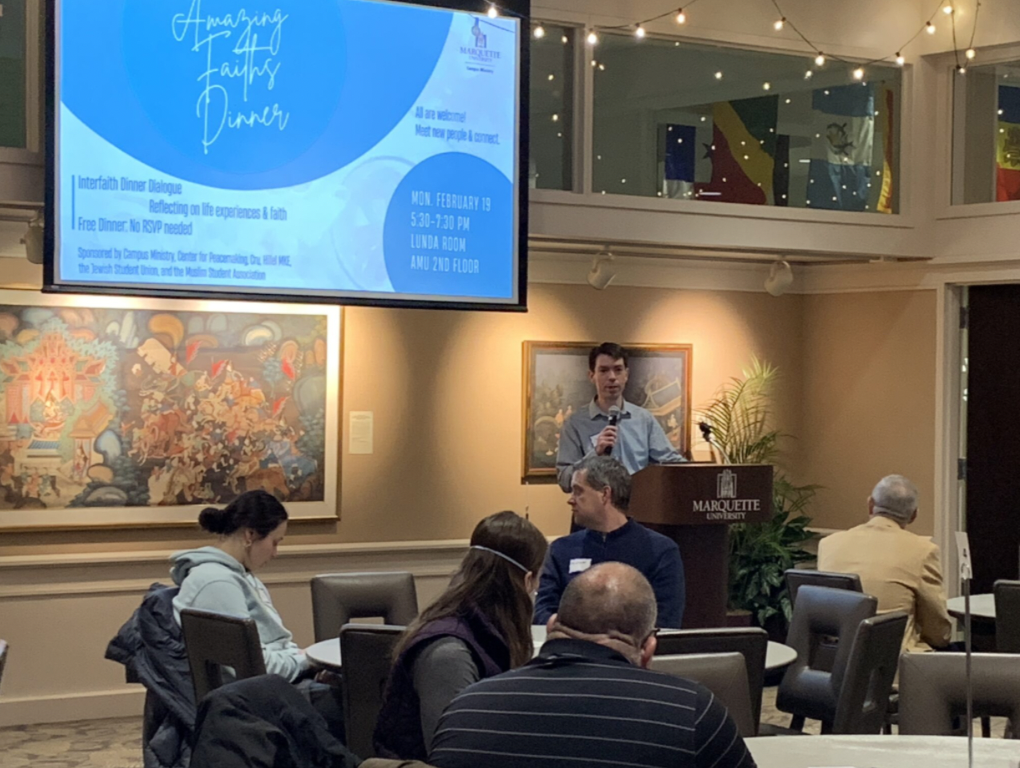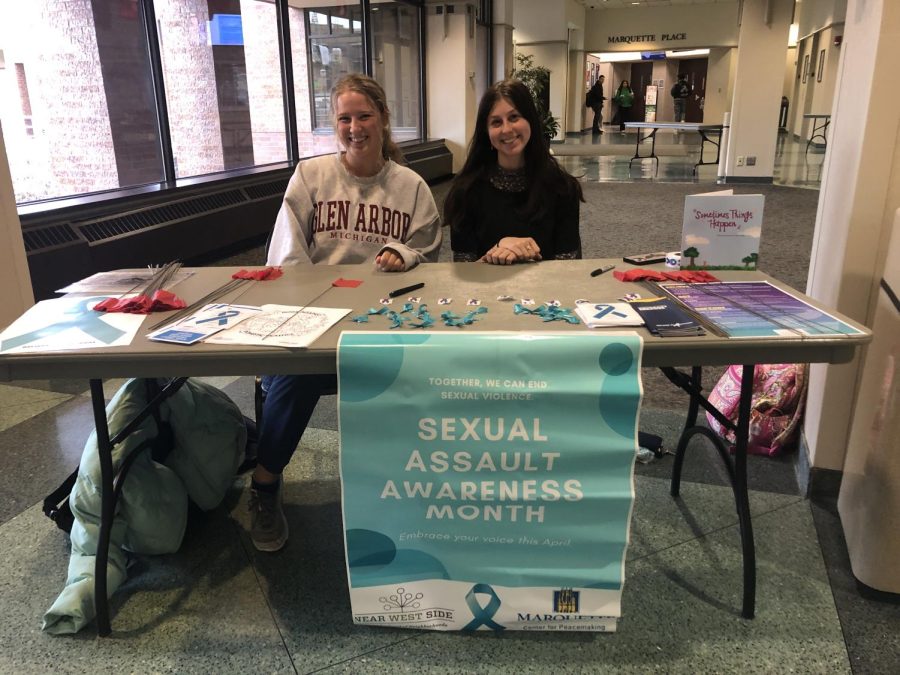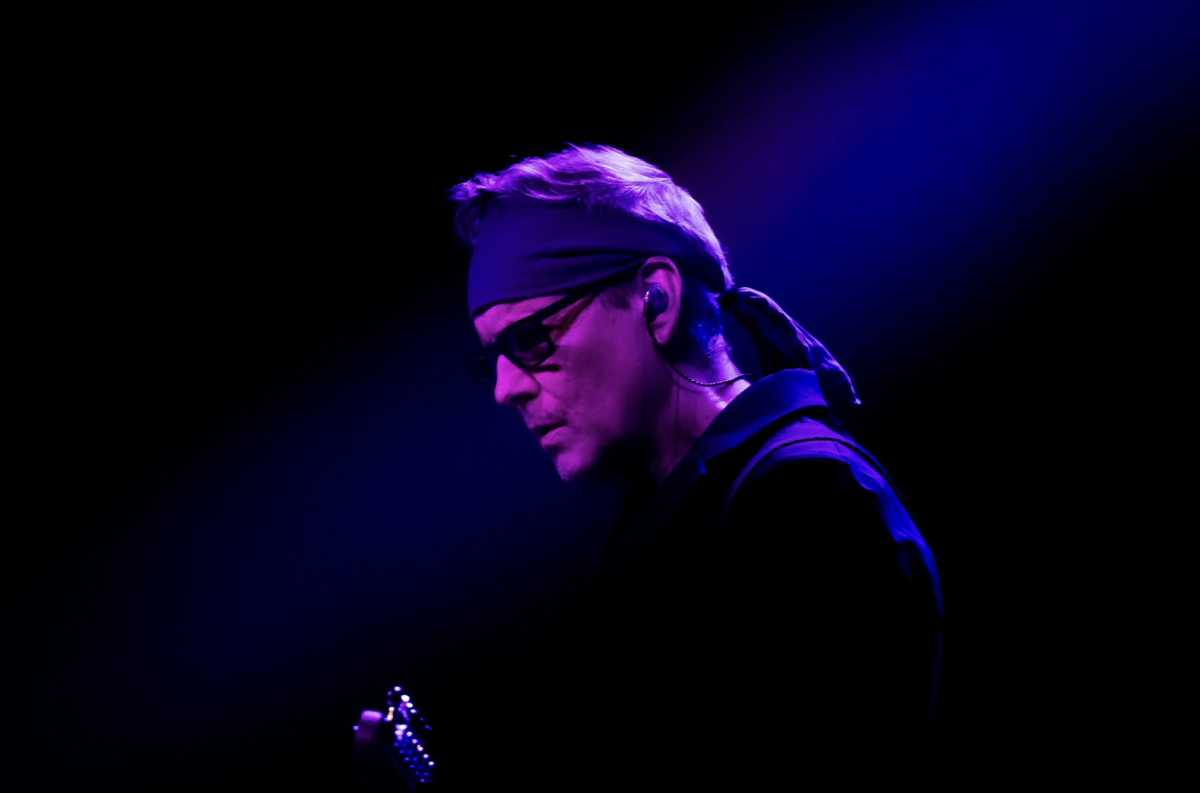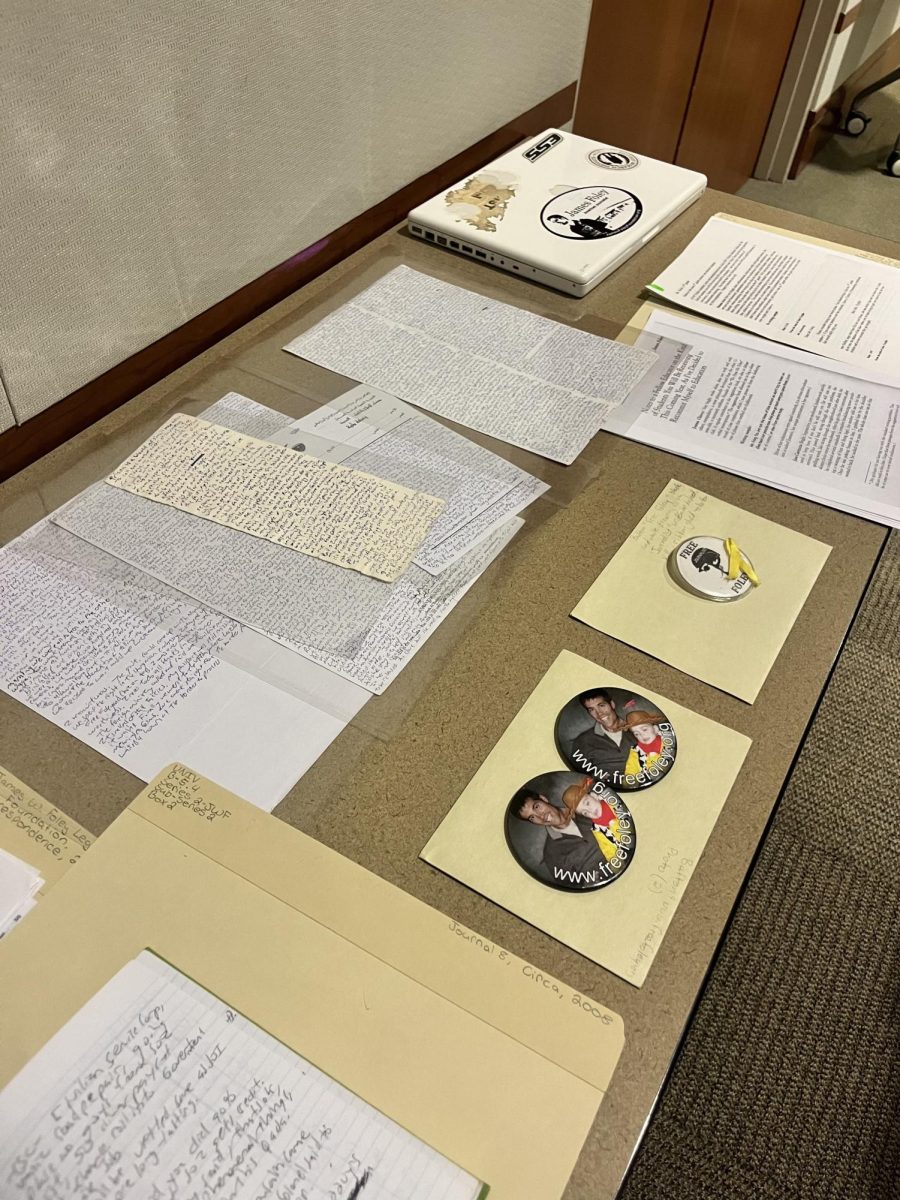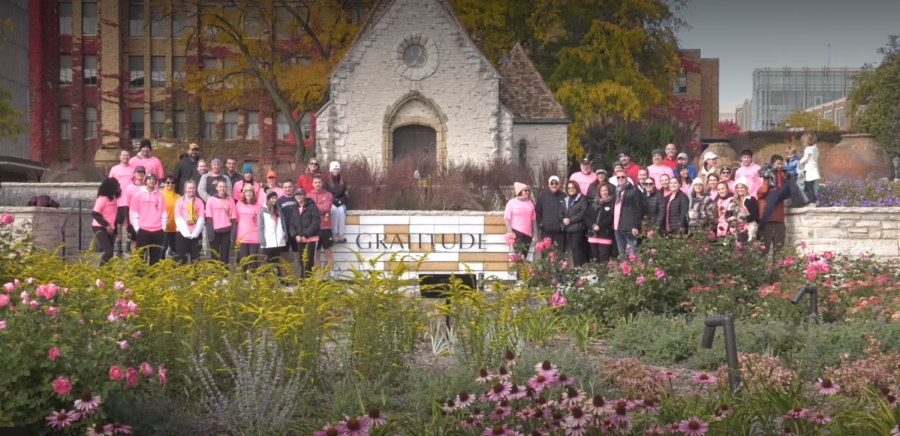Terrence Rynne, founder of Marquette’s Center for Peacemaking and board member of the National Catholic Reporter, was honored by the Foley Foundation with the 2019 James W. Foley Humanitarian Award April 2 in Washington D.C.
The Foley Foundation is an organization created in the legacy of James W. Foley, an American journalist who was an alumnus of Marquette University.
Foley became a conflict journalist, reporting in countries like Iraq, Afghanistan, Libya and Syria, according to the James Foley Foundation website. The journalist was detained once in Syria before he was killed Nov. 22, 2012 by the terrorist group ISIS.
“After looking at Marquette’s location and Jesuit mission, my wife Sally and I created the center to help educate students in peacemaking,” Rynne said. “Undergrad years are when most people are open to new things and learning. We thought this was important to work with students to help them understand that peace is so much more effective than violence.”
Rynne founded the center to create peace locally.
Center for Peacemaking director Patrick Kennelly said Rynne is a special part of the Marquette community.
“He teaches a peace studies program … and he’s a world-renowned scholar,” Kennelly said.
Thomas Durkin, researcher and grant coordinator at the Center for Peacemaking as well as good friend of Foley, said Rynne has published three books and has written an encyclical, a papal letter sent to all bishops of the Roman Catholic Church, showing his accomplishments.
“The day after he got the humanitarian award from The Foley Foundation in D.C., he was flying to Rome to meet with Pope Francis,” Durkin said. “He’s a voice that is recognized around the world.”
Durkin said Rynne also makes a local impact, with students getting involved with the Near West Side through the center.
“It was everything, he was impacting Marquette and making a difference in Rome with the Vatican,” Durkin said. “It was impressive to see that he could do things locally as well as globally.”
Rynne said he was looking forward to making a difference with the nonviolence movement, especially within the Church in the United States.
“So many times, we see that bishops in the U.S. are totally okay with violence,” Rynne said. “We need to work towards looking at everything with nonviolence. I think that’s what I’m most looking forward to.”

